Mind Over Matter: The Role of Focus in Athletic Achievement
26 November 2024
In the world of sports, physical power often takes center stage. We admire athletes for their speed, strength, and endurance. But what if I told you that the mind plays just as important a role, if not more, in an athlete's success? Sure, muscles and technique are essential, but focus — the mental ability to zero in on a goal and shut out distractions — is what often separates the champions from the rest. In this article, we’ll dive deep into the role of focus in athletic achievement and uncover how the mind can be an athlete's greatest asset.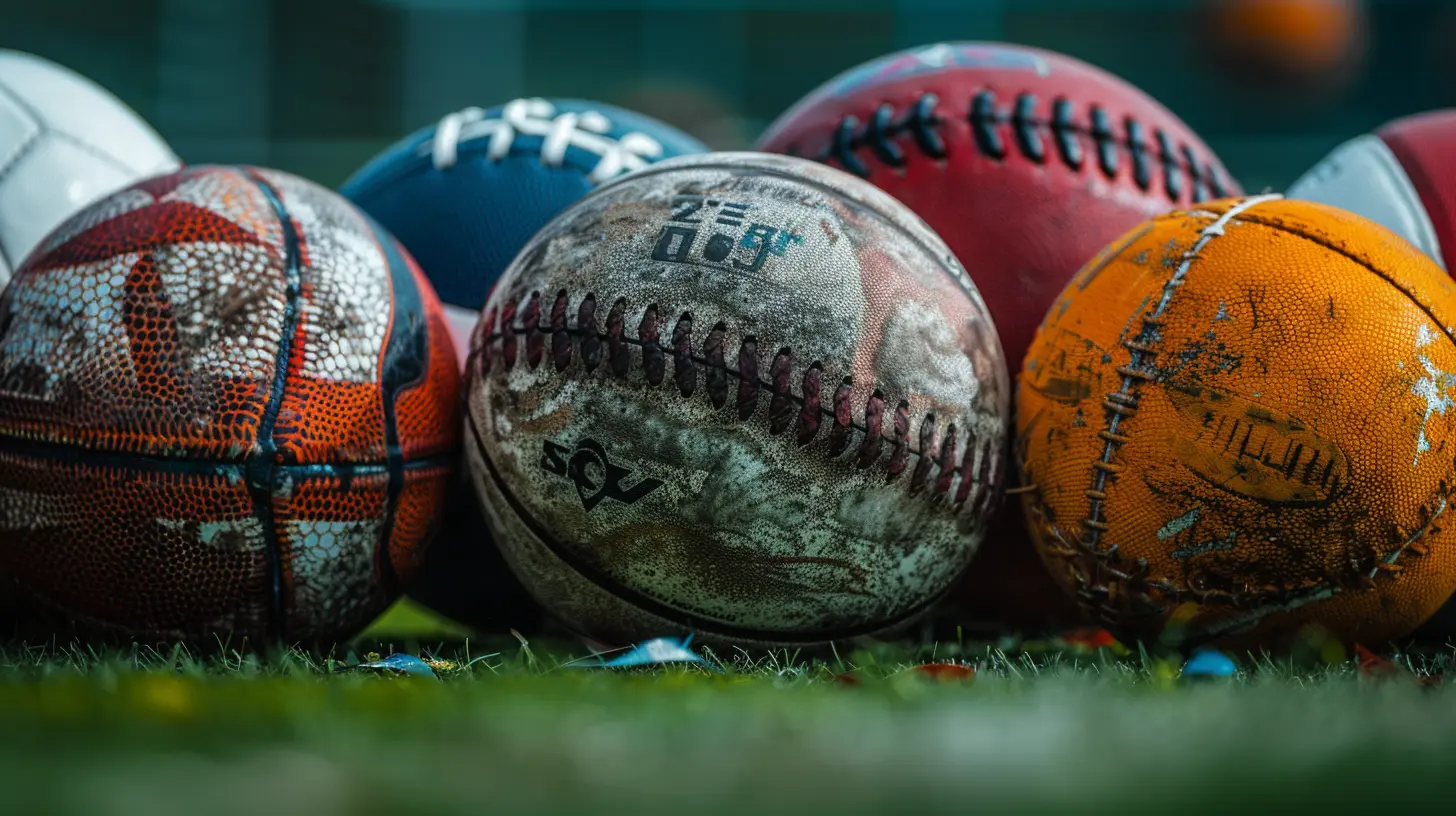
The Intersection of Mind and Body in Sports
Before we get into the nitty-gritty of focus, let’s clear something up: athletic achievement isn't just about physical prowess. It’s about the harmony between mind and body. Think of an athlete like a high-performance car. The engine (your body) is crucial, but without a skilled driver (your mind), that car’s potential won’t be fully realized.When athletes train, they don’t just push their bodies to the limit — they also train their minds. Whether consciously or not, they practice focus, discipline, and mental resilience, all of which are critical to performing well under pressure.
Ever notice how elite athletes seem to be in "the zone" during competitions? That’s focus in action. It goes beyond mere concentration; it’s a heightened state of awareness where distractions fade away, and the athlete is entirely absorbed in the task at hand. This is the level of focus that turns good athletes into great ones.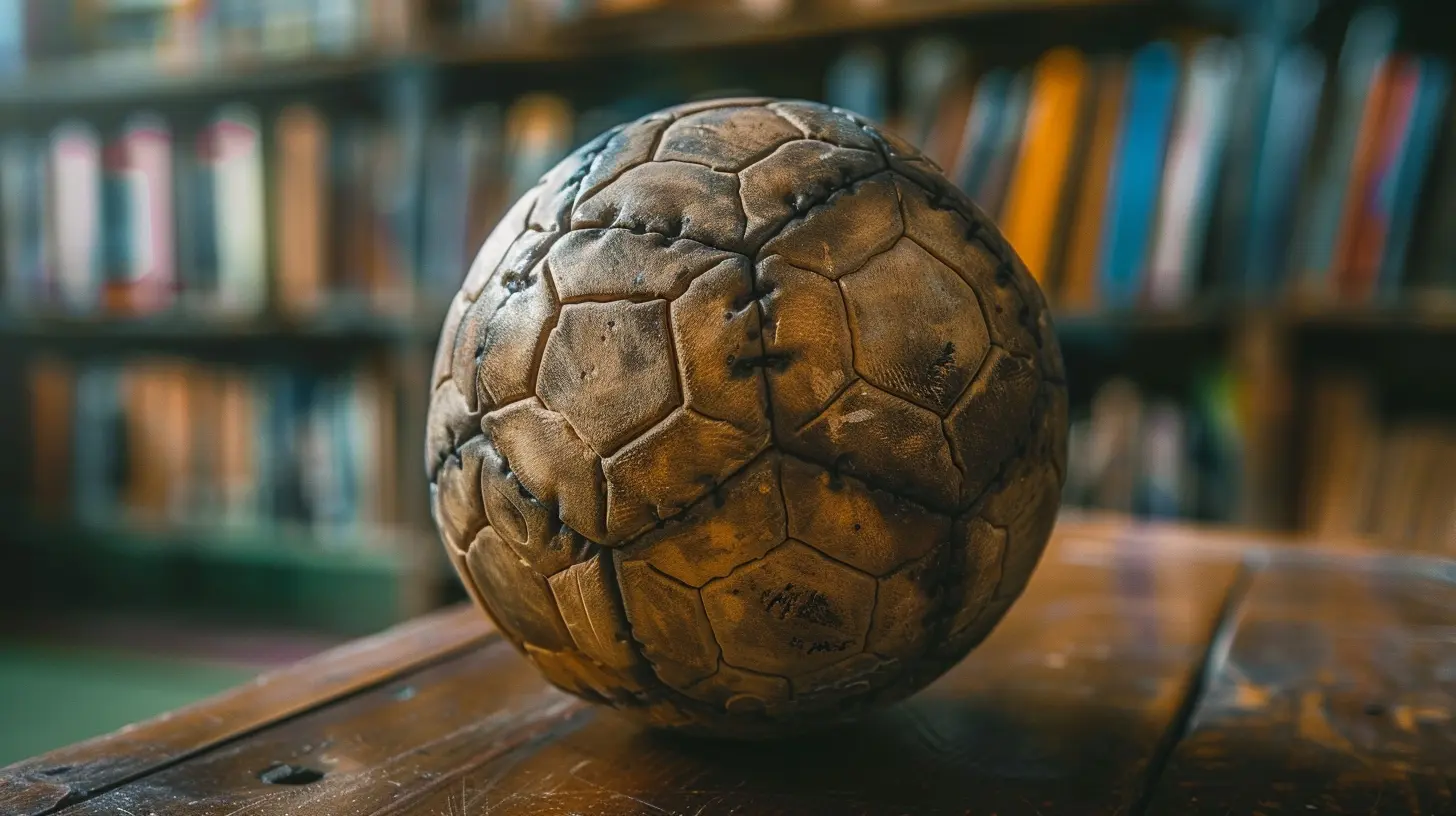
What Is Focus?
In simple terms, focus is the ability to direct your attention toward a specific goal or task while ignoring everything else. Sounds easy, right? But in the world of sports, where distractions are everywhere — the roar of the crowd, the pressure of the moment, fatigue, and even self-doubt — staying focused can be incredibly challenging.Focus isn't just about concentrating for a few minutes. It's about sustaining that concentration over long periods, even when the odds are against you. It's about being mentally present when it counts, whether you're taking a free throw in basketball, serving in tennis, or sprinting toward the finish line in a 100-meter race.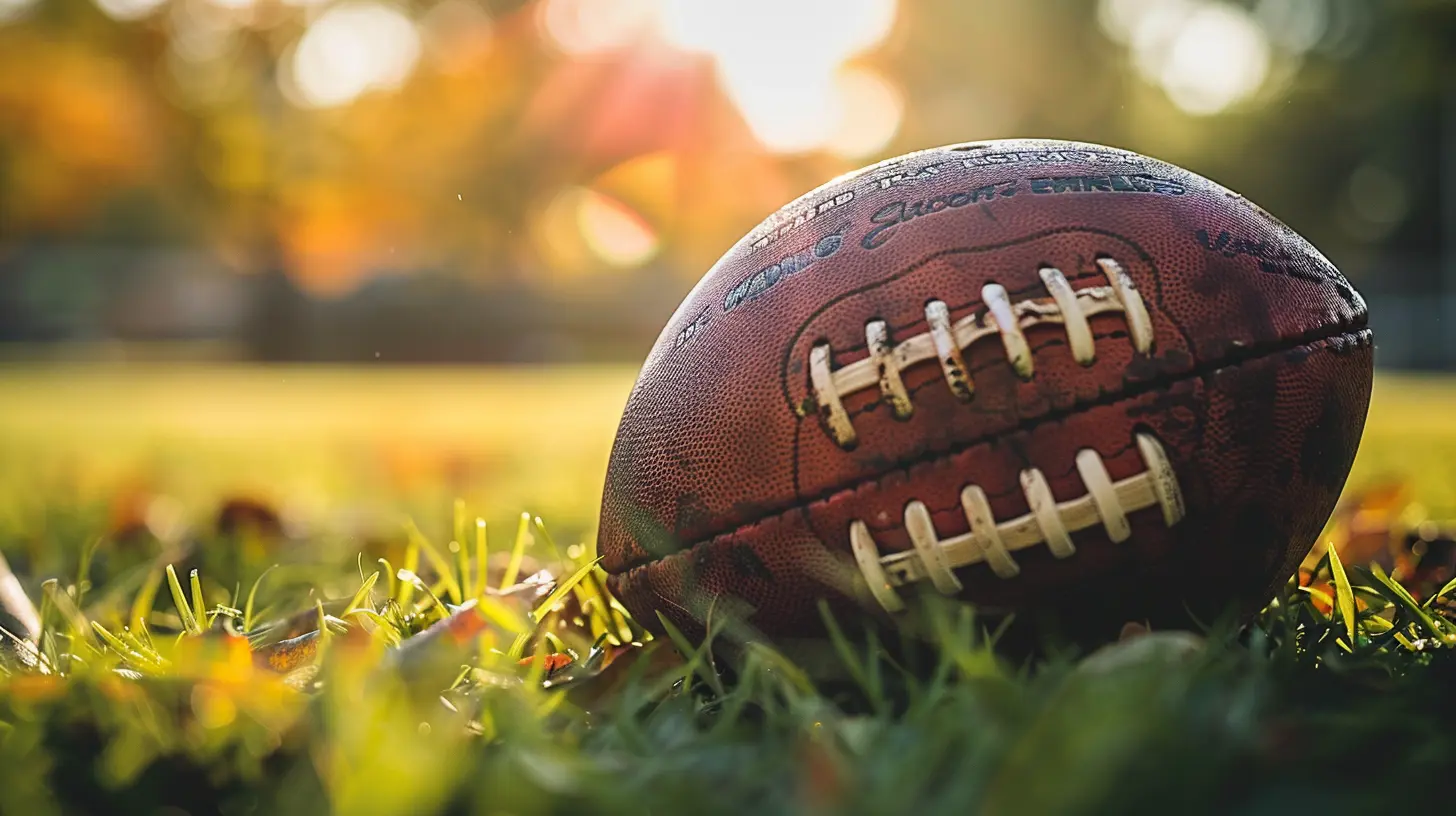
The Science Behind Focus and Athletic Performance
Believe it or not, there’s actual science supporting the connection between focus and performance. When an athlete is highly focused, the brain releases chemicals like dopamine and norepinephrine, which enhance cognitive functioning and alertness. These chemicals help athletes stay sharp, react faster, and make quick decisions — all crucial elements in competitive sports.Moreover, neuroscience has shown that focus activates the prefrontal cortex, the part of the brain involved in decision-making, problem-solving, and controlling impulses. In sports, this translates to better judgment, improved reaction times, and the ability to stay calm under pressure.
Ever wonder how a quarterback makes split-second decisions or how a gymnast maintains balance on a thin beam? It’s all about how well they can maintain focus, even when the stakes are sky-high.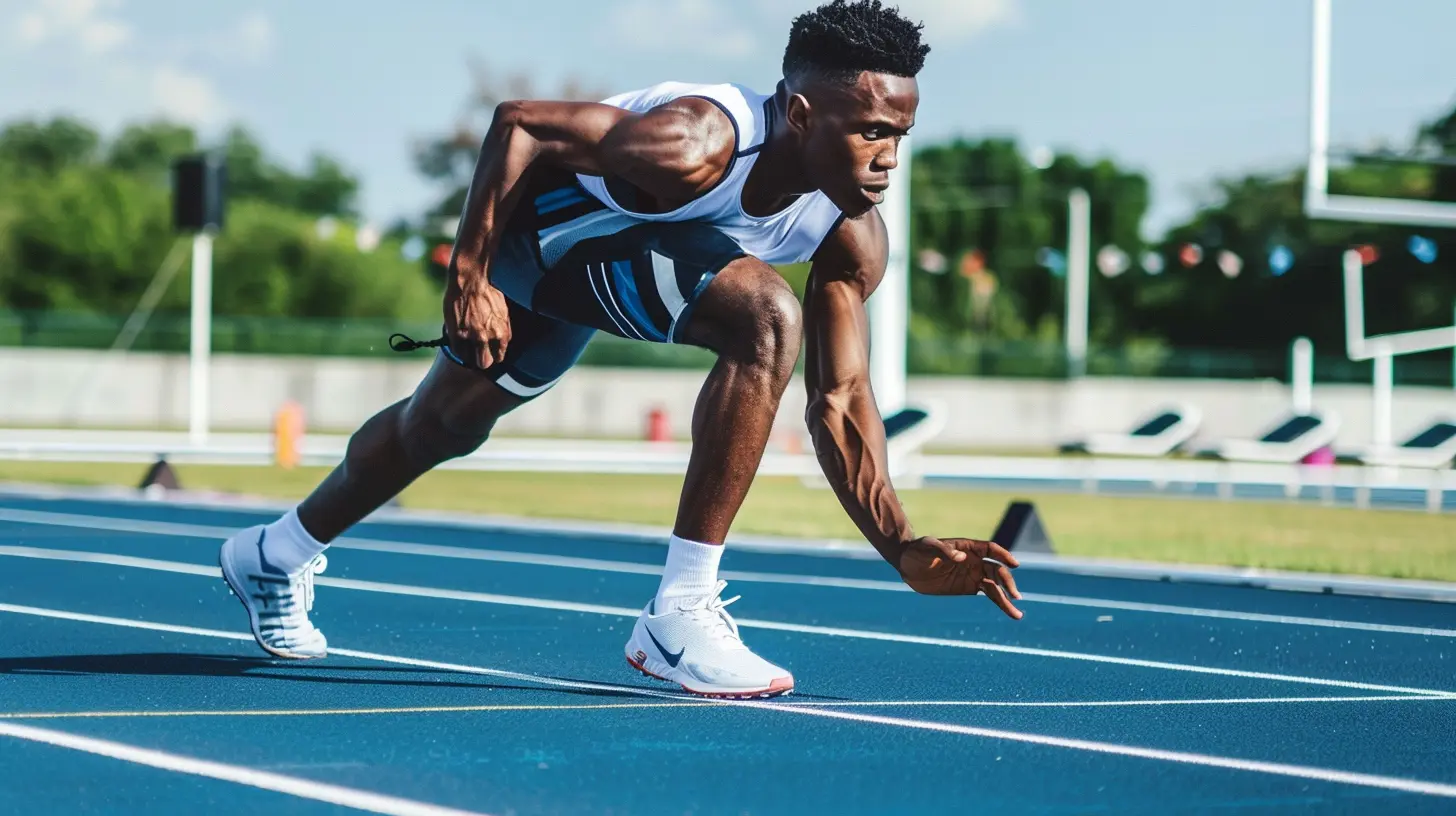
Types of Focus in Sports
Focus isn’t a one-size-fits-all concept. In fact, athletes often need to switch between different types of focus depending on the situation. Understanding these types can help athletes fine-tune their mental game.1. Broad Focus
Broad focus comes into play when athletes need to take in a lot of information at once. Think about a soccer player scanning the field to assess the positions of teammates, opponents, and the ball. This type of focus is crucial for strategy-heavy sports like football, hockey, and basketball, where a single play can change the entire game.2. Narrow Focus
On the flip side, narrow focus is all about zoning in on a specific task or detail. For example, a golfer lining up a putt or a sprinter honing in on the finish line needs narrow focus. This kind of focus allows athletes to block out everything else and zero in on the task at hand.3. Internal Focus
Internal focus involves paying attention to your own thoughts, emotions, and bodily sensations. It’s about being aware of how you’re feeling, both physically and mentally. For example, a marathon runner might focus on their breathing or muscle tension to maintain peak performance over long distances.4. External Focus
External focus is the opposite of internal focus. It involves concentrating on external cues, like the movement of the ball or the position of an opponent. For example, a tennis player might focus on the spin of the ball to anticipate how to return their opponent’s serve.Elite athletes are masters at switching between these types of focus depending on the demands of their sport. Understanding which type of focus is needed at any given time can make all the difference between success and failure.
The Role of Focus in Overcoming Adversity
Let’s face it: sports are full of challenges. Whether it’s an injury, a tough opponent, or a high-pressure situation, athletes are constantly faced with adversity. This is where focus becomes a game-changer. When an athlete can block out the noise — both literal and figurative — and remain focused on the goal, they increase their chances of overcoming obstacles.Take Michael Jordan, for example. He wasn’t just known for his physical skills; he was famous for his mental toughness. Jordan had an uncanny ability to focus under pressure, whether it was sinking a game-winning shot or playing through illness. His focus allowed him to rise above adversity and cement his status as one of the greatest athletes of all time.
How to Improve Focus in Sports
Now that we’ve established how important focus is, you might be wondering: How can athletes improve their focus? Luckily, focus is like a muscle — the more you work on it, the stronger it gets. Here are some proven strategies athletes use to hone their focus:1. Mindfulness and Meditation
Mindfulness and meditation are powerful tools for improving focus. By practicing mindfulness, athletes learn to stay present in the moment, which can help them block out distractions and stay locked in during competitions. Meditation, on the other hand, helps athletes develop greater control over their thoughts and emotions, which is key to maintaining focus under pressure.2. Goal Setting
Setting clear, realistic goals gives athletes something to focus on. Whether it’s a short-term goal (like winning the next match) or a long-term goal (like qualifying for the Olympics), having a target keeps athletes mentally engaged and motivated.3. Visualization
Many elite athletes swear by visualization, a mental technique where they imagine themselves succeeding before they even step onto the field. Visualization helps athletes prepare mentally for their performance, increasing their confidence and focus when it’s time to compete.4. Breathing Exercises
Controlled breathing can be a game-changer for athletes trying to maintain focus. Deep, controlled breaths help regulate the nervous system and calm the mind, which is especially useful in high-stress situations. Many athletes use breathing exercises to center themselves before crucial moments in a game or match.5. Routines and Cues
Athletes often develop pre-performance routines or cues to help trigger focus. Whether it’s bouncing a basketball before a free throw or taking a deep breath before a serve, these routines help athletes get into the right mental state. It’s almost like flipping a switch that says, "Okay, time to focus."The Dangers of Losing Focus
Now, what happens when an athlete loses focus? Well, the results can be disastrous. A momentary lapse in concentration can lead to missed opportunities, mistakes, or even injuries. In team sports, losing focus can affect not just one player but the entire team. In individual sports, it can mean the difference between gold and silver.Take tennis as an example. A player might start strong, but after losing a few points, their focus wanes. They become rattled, start making unforced errors, and before they know it, the match is slipping away. In this scenario, the loss isn’t due to a lack of skill but a lack of focus.
Conclusion: Focus as the X-Factor in Athletic Success
At the end of the day, the athletes who rise to the top are the ones who can harness the power of their minds. Physical training is crucial, but mental training — especially the ability to focus — is what separates the good from the great. Whether it’s Michael Jordan sinking a buzzer-beater, Serena Williams nailing a match point, or Usain Bolt sprinting to victory, focus is the secret weapon that helps athletes perform at their best.So next time you watch a big game or competition, remember: It’s not just about speed, strength, or skill. It’s about mind over matter. And in the world of sports, a focused mind is often the most powerful tool an athlete can have.
all images in this post were generated using AI tools
Category:
Sports PsychologyAuthor:

Preston Wilkins
Discussion
rate this article
20 comments
Kirk McLanahan
Focus is the cornerstone of athletic success. It's not just about physical ability; a sharp mind drives performance, transforms potential, and propels athletes to new heights. Embrace it!
April 3, 2025 at 10:18 AM

Preston Wilkins
Thank you for your insightful comment! I completely agree—mental focus is crucial for maximizing athletic potential and achieving success. Embracing this mindset can truly elevate performance.
Pilar Rodriguez
Focus is essential for reaching peak performance.
March 23, 2025 at 5:26 AM

Preston Wilkins
Absolutely! Focus is the cornerstone of peak performance, enabling athletes to channel their energy and skills effectively.
Chantal McClellan
True champions harness focus; it's the ultimate game-changer in athletic success!
February 10, 2025 at 7:38 PM

Preston Wilkins
Absolutely! Focus is indeed a vital component that separates champions from the rest. It transforms potential into performance.
Fiona Fletcher
Focus transforms potential into performance; mind truly drives athletic success.
February 1, 2025 at 9:38 PM

Preston Wilkins
Thank you for your insightful comment! Indeed, focus is a crucial element that bridges potential and performance in athletics.
Zinn Brown
Great article! It’s so true that mental strength often sets the champions apart. Focusing your mind can transform your performance—just like that moment before a big game when everything else fades away. Thanks for sharing!
January 27, 2025 at 7:18 PM

Preston Wilkins
Thank you! I'm glad you enjoyed the article and resonated with the message about the power of focus in sports. Your feedback is much appreciated!
Xander Kelly
“Sure, focus is key, but let’s face it: without a killer instinct and a sprinkle of raw talent, all the mindfulness in the world won’t turn you into the next sports star. Get your head in the game, but don’t forget to bring the skills!”
January 23, 2025 at 4:08 AM

Preston Wilkins
You're absolutely right! While focus is crucial, raw talent and a competitive edge are essential for reaching the top. Balance is key!
Caitlin Matthews
Unlocking potential: focus is the unseen force in sports.
January 18, 2025 at 5:34 AM

Preston Wilkins
Thank you! Focus truly is a powerful catalyst that drives athletes to unlock their full potential and achieve greatness.
Odessa McElveen
Focus is a game-changer in sports. Athletes must harness mental discipline to enhance performance and overcome challenges. By cultivating a strong mindset, they can improve concentration, reduce distractions, and ultimately unlock their full potential. Remember, success starts in the mind!
January 14, 2025 at 5:20 AM

Preston Wilkins
Absolutely! Mental discipline is crucial for athletes; mastering focus can truly elevate performance and drive success.
Marlowe McCabe
The article adeptly highlights how mental focus can elevate athletic performance, emphasizing that success often hinges not just on physical ability, but also on psychological resilience.
January 8, 2025 at 5:48 AM

Preston Wilkins
Thank you for your insightful comment! I’m glad the article resonated with you and emphasized the importance of mental focus in achieving athletic success.
Azriel McDowell
Who knew a little mental gymnastics could boost athletic prowess? Let's channel our inner zen master—just remember, focus isn't just for yoga! 🧘♂️🏅
December 31, 2024 at 5:07 AM

Preston Wilkins
Absolutely! Mental focus is key—it's where the mind and body unite for peak performance. Zen on the mat, excellence on the field! 🧘♂️🏆
Laila McCloud
Great insights! Focus truly transforms performance and drives athletic success.
December 26, 2024 at 8:36 PM

Preston Wilkins
Thank you! I'm glad you found the insights valuable. Focus is indeed a key driver in maximizing athletic potential.
Desiree McLaurin
Focus isn't just a mental game; it’s the secret weapon of champions. Athletes who harness their minds can push boundaries, shatter records, and conquer challenges. It's time to stop underestimating the power of mental strength—because in sports, the mind often triumphs over mere physical prowess.
December 24, 2024 at 3:33 AM

Preston Wilkins
Absolutely! Mental strength is crucial in sports; it often determines who excels beyond physical abilities. Harnessing focus can truly transform performance and lead to extraordinary achievements.
Madison Mendoza
Focus is everything; champions never waver.
December 21, 2024 at 5:11 AM

Preston Wilkins
Absolutely! Focus is crucial; it allows athletes to channel their energy and maintain consistency, leading to peak performance. Thank you for highlighting this important point!
Solstice Clayton
This article brilliantly highlights the often-overlooked mental strategies that can elevate athletic performance. I’m intrigued by the idea of how focus shapes not just physical outcomes but also the entire athlete's mindset. Can training focus truly be a game-changer?
November 28, 2024 at 8:47 PM

Preston Wilkins
Thank you for your thoughtful comment! Indeed, training focus is crucial; it not only enhances physical performance but also fosters a resilient mindset that can significantly impact overall achievement in sports.
Emma McFee
Great article! 🏅 It's amazing how much of athletic success hinges on mental focus. The mind truly is a powerful tool, influencing performance just as much as physical training. Looking forward to seeing how athletes continue to harness this balance for future achievements! Keep up the great work!
November 28, 2024 at 1:25 PM

Preston Wilkins
Thank you for your thoughtful comment! I completely agree that mental focus is crucial for athletic success. Excited to see how this understanding evolves in the future!
Joanna Powell
“Focus: the secret ingredient! Like chocolate in a cake, it makes everything sportier!” 🍰🏅
November 28, 2024 at 3:55 AM

Preston Wilkins
Absolutely! Focus is essential—just like chocolate elevates a cake, it enhances performance in sports. 🏆
Daphne McKnight
Great read! It’s amazing how much our minds can influence our athletic performance. Remember, with a strong focus and positive mindset, we can overcome any obstacle on the field. Keep pushing your limits!
November 27, 2024 at 12:34 PM

Preston Wilkins
Thank you! I completely agree—mindset is a powerful tool in achieving our best on the field. Let’s keep pushing our limits together!
Oren McConnell
Focus is the silent coach that elevates athletes from good to great. It's not just about physical prowess; mastering the mind can turn potential into performance and dreams into reality. Game on!
November 27, 2024 at 5:22 AM

Preston Wilkins
Absolutely! Mental focus is indeed a game-changer, transforming potential into peak performance. Thank you for highlighting its crucial role in athletic success!
Alice Holland
Great article! You highlighted the crucial connection between mental focus and athletic performance. It's fascinating to see how athletes harness their mindset to overcome challenges. This insight can inspire both aspiring and seasoned competitors to prioritize mental training alongside physical preparation.
November 26, 2024 at 8:52 PM

Preston Wilkins
Thank you! I'm glad you found the connection between mental focus and athletic performance enlightening. It's indeed vital for all athletes to prioritize their mindset.
Skyler McClure
Focus is crucial for athletes; it can transform potential into performance. Mastering mental discipline often distinguishes champions from contenders in competitive sports.
November 26, 2024 at 12:15 PM

Preston Wilkins
Absolutely! Focus is indeed the key that unlocks an athlete's true potential, setting champions apart through unwavering mental discipline.
MORE POSTS

The Best Travel Destinations for Watersports Enthusiasts

The Power of Good Sportsmanship in Uniting the World of Athletics

The Financial Impact of Stadiums on Sports Leagues

How Injury Reports Affect a Teams Championship Chances

How Ball Possession Led to Victory in the Weekends Big Match

Underdog Stories That Will Make You Believe in Miracles

The Importance of Mental Recovery After Athletic Burnout

Possession vs Counter-Attack: Which Strategy Came Out on Top?

How Sports Leagues Are Adapting to Climate Concerns

Grace Under Pressure: Athletes Who Define Sportsmanship in Tough Times
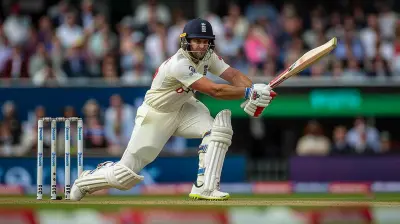
The Rise of Unconventional Shots: From Switch-Hits to Scoops

Breaking Down the Art of Ground and Pound